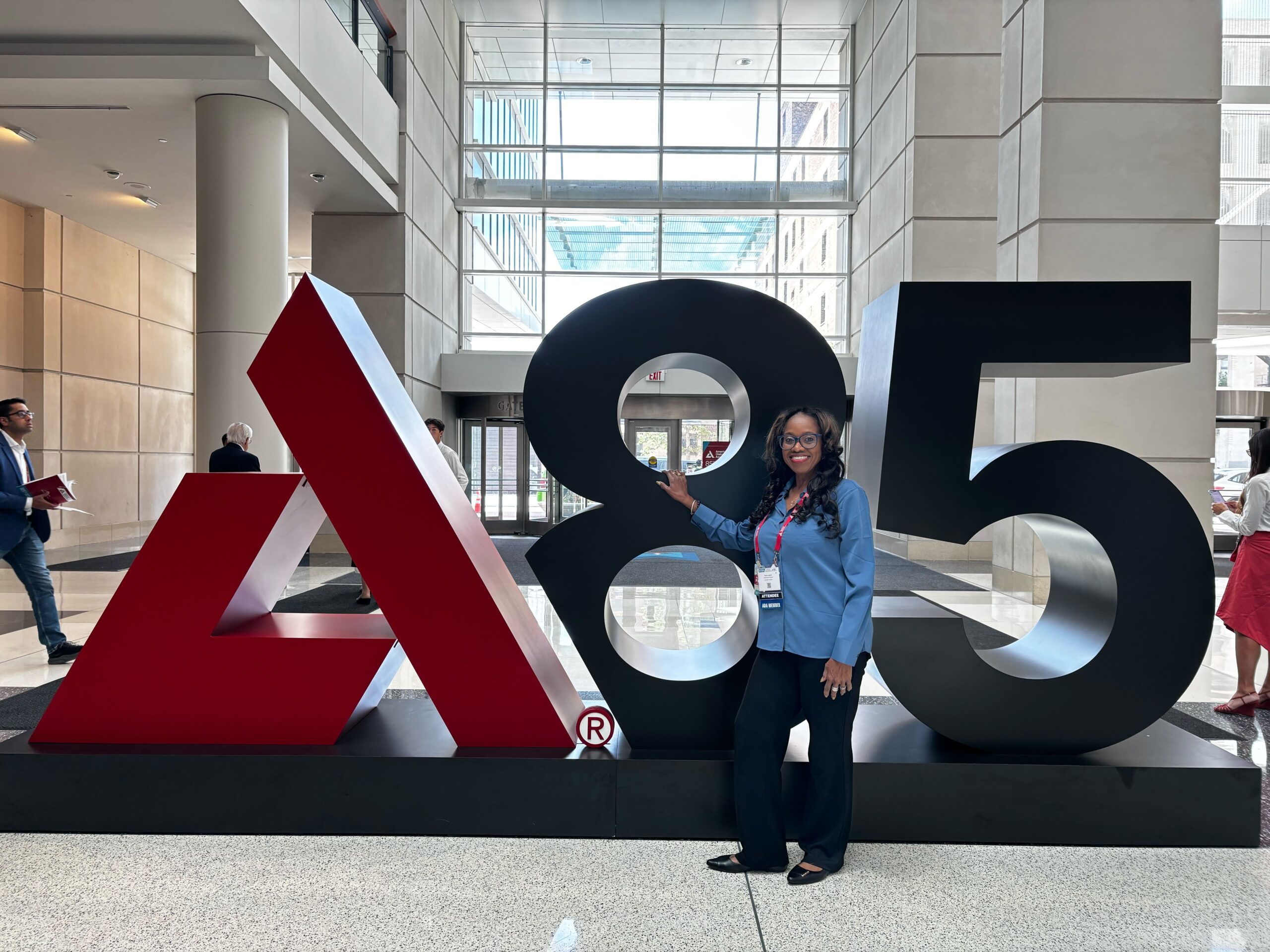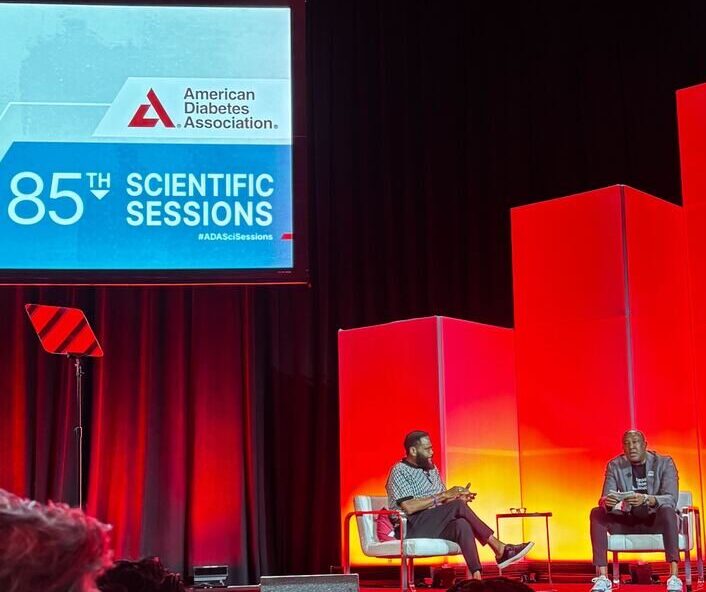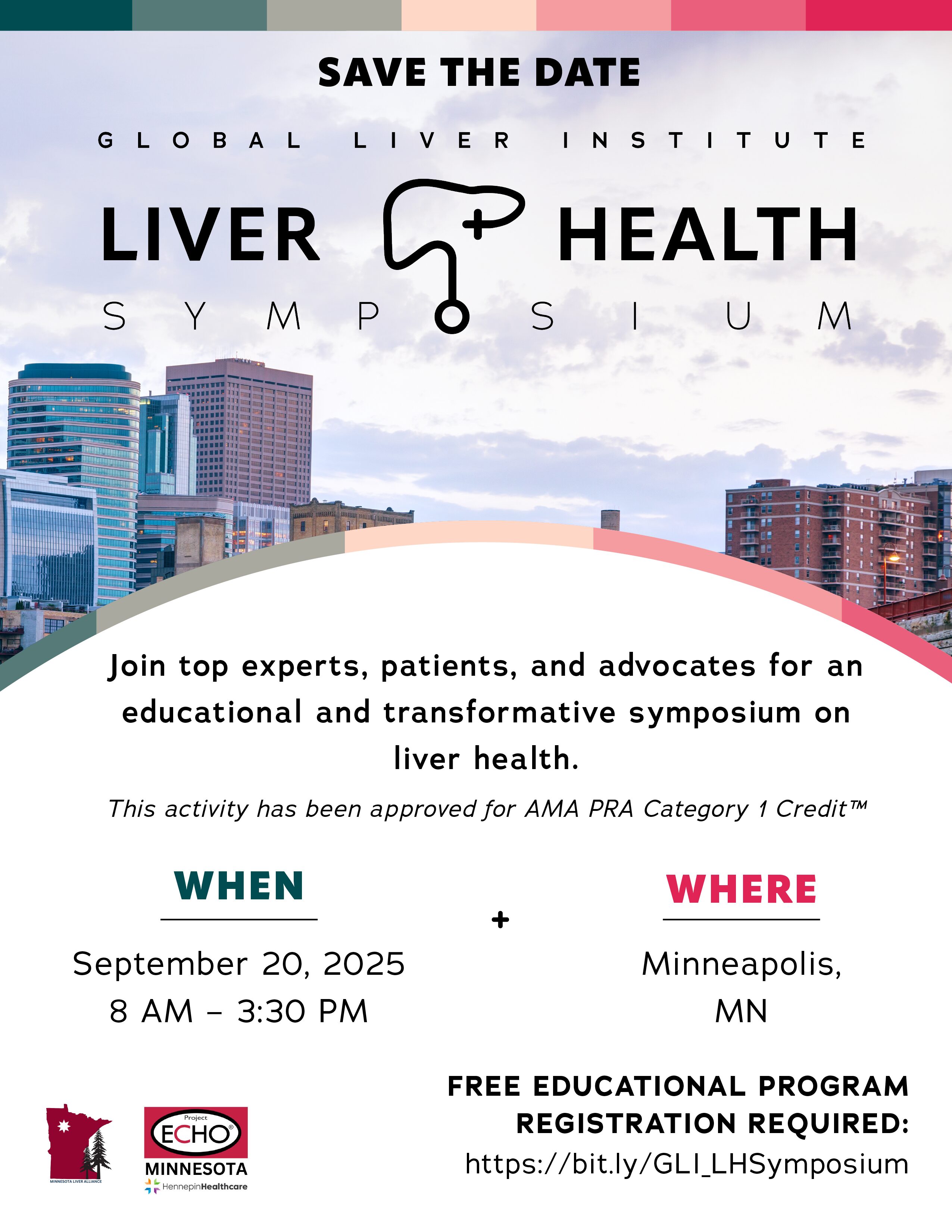
Advancing Screening, Science & Advocacy
A Note from the Director, Dr. Sharon H. Jaycox
Reflections on the American Diabetes Association (ADA) Scientific Sessions
I recently had the privilege of attending the ADA Scientific Sessions in Chicago. One of the key themes underscored throughout the conference was the critical need for collaboration between hepatology and endocrinology. This partnership highlights the importance of early screening in detecting and preventing fatty liver disease. By establishing screening modalities as a standard of care, and utilizing noninvasive methods such as the FIB-4 to estimate liver fibrosis, we could significantly reduce the prevalence of fatty liver disease and prevent its progression to more severe conditions, such as MASH.

Another highlight of the event was hearing patient advocate Anthony Anderson during a fireside chat with ADA’s CEO, Chuck Henderson. Mr. Anderson, who has been managing his diabetes successfully for 25 years, delivered an inspiring and thought-provoking message. Anthony Anderson passionately urged men, particularly Black men, to visit their doctors regularly. Acknowledging the broken trust many feel in the healthcare system, he emphasized the need for patience, grace, and understanding to rebuild that trust. “Eventually,” he said, “a light bulb goes off.”
Anderson stressed the importance of partnerships with advocates like himself and the value of speaking up on one’s behalf. Reflecting on his diagnosis, he shared how he faced a pivotal decision: whether to live with the disease or let it dictate his fate. He chose to live—and to thrive—by making essential lifestyle changes.
He encouraged everyone to stop making excuses and instead use whatever tools and resources are available. While he acknowledged that his wealth and fame allowed him access to resources such as the gym, he also recognizes disease management is “about the changes you make,” Mr Anderson suggested making simple yet impactful choices like taking the stairs instead of relying on a gym membership.
Anthony Anderson’s story is a powerful reminder that meaningful change begins with personal commitment and advocacy, both for oneself and within the broader healthcare community.


A Patient’s Perspective
Fatty Liver, No Warning: Jerry’s Story of Survival and Advocacy
In a feature story on The Educated Patient, Liver transplant recipient Jerry Rosenberg provides a thought-provoking and meaningful story of how he went from living an everyday life to discovering he had undiagnosed liver disease. Jerry, now a patient advocate, shares how he has taken this on as a mission to educate others on liver disease.
Global Fatty Liver Day: an international Showcase
Global #FattyLiverDay was a Powerful Show of Global Collaboration and Commitment.
This year, over 120 partners from more than 60 countries and 29 endorsers helped raise awareness, host 85+ community events, share resources, and demonstrate why liver health matters to the world. Check out our “At a Glance” report for highlights and stay tuned for the full Global Fatty Liver Day 2025 report.
Save the Date: Global Liver Institute’s Liver Health Symposium, Minnesota
Join us on September 20 in Minnesota for the Liver Health Symposium—a one-day, in-person event bringing together patients, caregivers, providers, and advocates to learn more about liver health.
With two tracks—one for the community and one for providers—this event offers education and powerful tools to prevent, detect, and treat liver disease. Whether you’re navigating liver health or leading care, the symposium connects you to the latest knowledge and a passionate community ready to make a difference.
Emerging Insights
GLI Works With Congress to Protect and Advance Veterans’ Health
GLI drafted language that was included in the Military Construction, Veterans Affairs, and Related Agencies report accompanying the House appropriations bill. GLI emphasizes that veterans should receive NASH/MASH care while not mandating a biopsy when less invasive technologies for diagnosis exist. The language can be found on page 36 of the report. Click here to read GLI’s Statement.
No Safe Daily Alcohol Limit for Patients with Metabolic Liver Disease
A recent study conducted by the Clinic University Hospital of the INCLIVA Health Research Institute in Valencia, Spain, has revealed that even moderate levels of alcohol consumption in MASLD patients increase the odds of significant fibrosis and progression of disease. The research calls for an accurate assessment of alcohol consumption to effectively manage MASLD patients.
Major Progress in the Global Response to Liver Disease!
GLI CEO, Larry R. Holden, represents the patient voice as a co-author in a recent publication in Nature Medicine. This reflects collaborative efforts to unify and strengthen how we talk about and tackle MASLD worldwide, reaffirming GLI’s commitment to advancing liver health through science, advocacy, and policy.
⬇️ Tools and Resources ⬇️
ADA issues new MASLD Guidelines
On May 28th, 2025, ADA released updated practice guidelines targeting clinicians who manage patients with diabetes, especially those at risk for metabolic dysfunction-associated steatotic liver disease (MASLD). The guidelines aim to empower primary care providers with tools to diagnose MASLD at an earlier stage and mitigate the progression to severe liver complications such as cirrhosis. The ADA emphasizes the critical need for frequent screening of patients with type 2 or prediabetes, as they are most vulnerable to MASLD due to the metabolic indications. The report also delves into several pivotal topics, including the rationale behind the recent changes in nomenclature, due in part by attempts to better classify and understand the disease spectrum, and the current epidemiological trends that highlight the rising prevalence of MASLD. The update serves as a beacon for clinicians to adopt a proactive stance in managing MASLD, ultimately aiming to improve the quality of life for millions of patients nationwide.
New – Is Your Liver Healthy? Fatty Liver Disease Risk Assessment Quiz
Take this quick, confidential quiz from Global Liver Institute to better understand your risk for fatty liver disease. In just a few minutes, you’ll gain valuable insights and learn whether it’s time to speak with your healthcare provider about your liver health.
Dx Dialogues: Metabolic-associated steatohepatitis (MASH)
We’ve collaborated with Sharecare to create a MASH content destination center that provides healthcare providers with timely medical information, market trends, and more.
Visit the resource center here for a video series with Dr. Nadege Gunn, where she explores the evolving landscape of diagnosing and managing MASH.
Alcohol-Associated Liver Disease (ALD) Is On The Rise: What To Know
ALD is a preventable disease that is the most common cause of advanced hepatic disease. Rising global trends in alcohol consumption, driven by shifting societal attitudes, have contributed to a steady increase in ALD cases. To address this growing concern, the American Journal of Gastroenterology has recently released practice guidelines aimed at aiding healthcare providers in identifying and managing ALD effectively.
Upcoming Events
- July 10, 2025: Fatty Liver Disease Council meeting, for more information, please contact fattyliverdisease@globalliver.org
- July 28, 2025: World Hepatitis Day
- September 5-8, 2025: Global Liver Institute’s Advanced Advocacy Academy (A3), Washington, D.C.
- September 20, 2025: Liver Health Symposium, Minnesota






